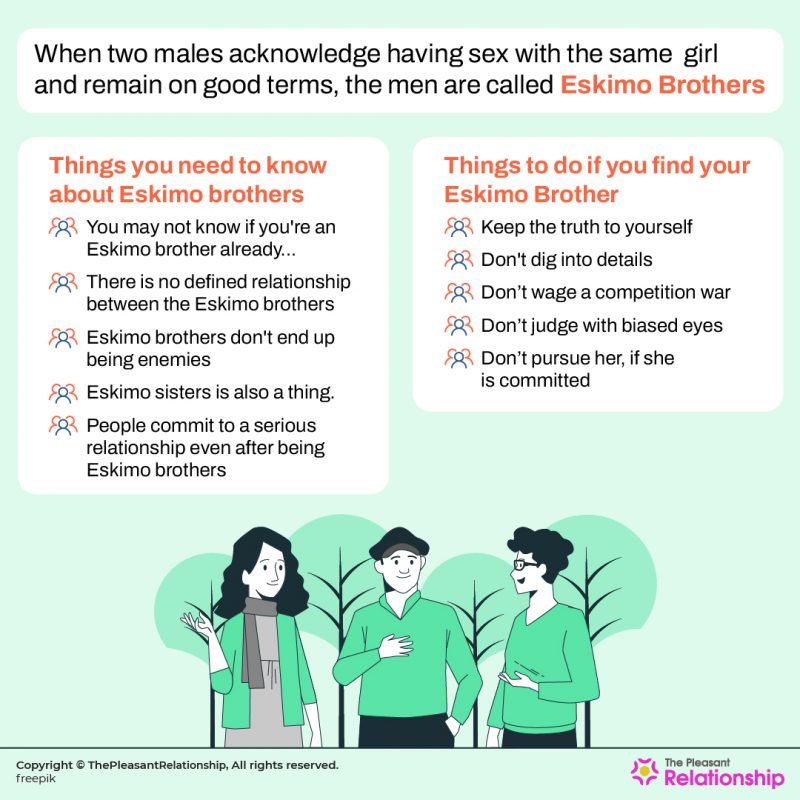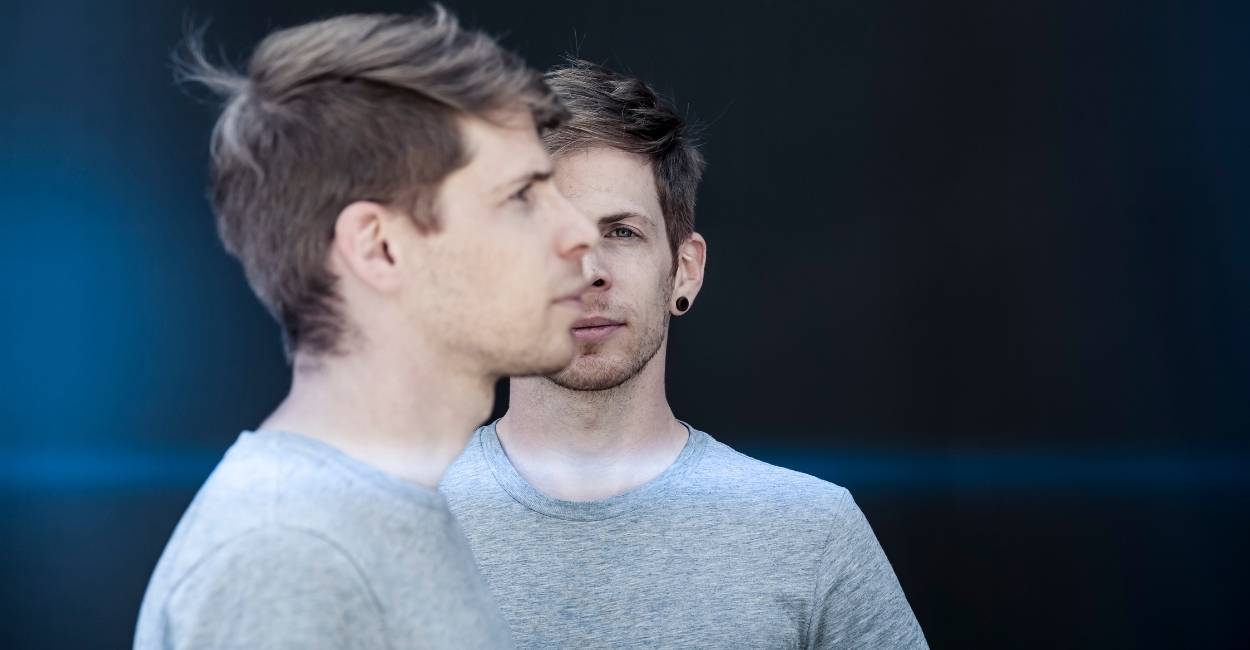Eskimo Brothers: The Controversial Meaning & Modern Takes!
Ever heard a term that made you pause, maybe even raise an eyebrow? Few phrases encapsulate the complexities of modern relationships and evolving social norms quite like "Eskimo brothers," a term that, despite its controversial origins, has permeated popular culture.
The expression "Eskimo brothers" refers to two men who have had sexual relations with the same woman. While the origins of the term are murky and potentially rooted in misconceptions about Inuit culture, its contemporary usage is widespread, particularly within online communities and college environments. The Urban Dictionary, a well-known source for slang and informal language, defines "Eskimo brothers" as a situation "when two males acknowledge" This acknowledgement varies; some view it as a humorous connection, while others find it distasteful and unnecessary. Regardless of perspective, the term sparks debate and raises questions about male bonding, sexual history, and cultural sensitivity.
| Aspect | Description |
|---|---|
| Term | Eskimo Brothers |
| Definition | Two men who have had sexual relations with the same woman. |
| Origin | Unclear, potentially linked to misconceptions about Inuit culture. |
| Popularity | Gained traction through online communities, particularly Urban Dictionary, and popular culture (e.g., the TV show "The League"). |
| Usage | Ranges from lighthearted humor to derogatory and offensive. |
| Related Terms | Eskimo Sisters (two women who have slept with the same man), Eskimo Dads (two men who have children with the same woman), Eskimo Father (the first man to have sex with a woman). |
| Controversy | The term is considered derogatory, inaccurate, and disrespectful to Inuit and Yupik people and women. |
| Cultural Sensitivity | The use of the term is increasingly scrutinized due to its problematic cultural appropriation and potential for misogyny. |
| Alternatives | Efforts are underway to find less offensive and more appropriate terms. |
| Reference | Urban Dictionary |
The term's ambiguity is further highlighted by differing interpretations. Some individuals consider being "Eskimo brothers" a source of amusement, fostering a sense of camaraderie based on a shared experience. Others perceive it as a crude and unnecessary reminder of past encounters. The New Trier student body, for instance, exhibits this division, with opinions ranging from disgust to amusement. This disparity reveals how subjective the term can be, influenced by individual values, relationship dynamics, and broader cultural attitudes.
- Mkvpoint Guide Is It Safe Find Movies Alternatives Now
- Adipurush Movierulz Controversy Reviews Movie News Today
Beyond the basic definition, variations and extensions of the term exist. "Eskimo dads" refers to two men who each have a child with the same woman, while "Eskimo father" (sometimes referred to as an "igloo pop") describes the man who took a woman's virginity before another man had sexual relations with her. These extensions highlight the intricate, sometimes bizarre, ways in which people attempt to categorize and label sexual relationships.
The popularity of "Eskimo brothers" received a boost from the American television sitcom "The League." In the second episode, the character Taco, portrayed by Jon Lajoie, introduces the concept to his friends, defining it as "when two guys had sex with the same girl." Taco leverages this connection to gain favors, such as free drinks at a bar, demonstrating a transactional and arguably superficial understanding of the bond. This portrayal, while comedic, contributed to the term's mainstream recognition.
However, the term is not without its critics. Many argue that it is derogatory, inaccurate, and disrespectful, particularly to Inuit and Yupik people. The appropriation of "Eskimo" to describe a casual sexual connection trivializes the culture and heritage of these indigenous communities. Furthermore, the term can be viewed as misogynistic, objectifying women and reducing their role to a shared sexual conquest. This criticism has led to calls for the abandonment of the term and the adoption of more respectful and accurate language.
- Movierulz 2025 Kannada Movie Download Alternatives Info
- Vegamovies 18 Xxx Free Movie Downloads Streaming Online
The discussion surrounding "Eskimo brothers" also extends to the historical and cultural context of Inuit practices. Some speculate that the term originated from a misinterpretation of Inuit and Aleutian cultural traditions, specifically practices related to polygamy and polyamory. However, these speculations often lack factual basis and perpetuate harmful stereotypes. The complexities of Inuit social structures and customs should not be reduced to a simplistic and potentially offensive label.
The term has also found its way into online forums and communities, such as the r/AskHistorians subreddit, where users exchange opinions on its meaning and history. These discussions often involve attempts to trace the term's origins, analyze its cultural implications, and debate its appropriateness. While such discussions can be informative, it's crucial to approach them with sensitivity and a willingness to engage with diverse perspectives.
For some, being "Eskimo brothers" implies a bond of trust and friendship, offering an opportunity to network with other men who share a common experience. However, this interpretation is not universally accepted. Some individuals find the concept inherently uncomfortable, particularly if the shared sexual partner is a current or former romantic interest. The dynamic can be further complicated by feelings of jealousy, competition, or insecurity.
In a relationship context, the idea of "Eskimo brothers" can be a sensitive topic. Some couples may choose to address it openly and honestly, establishing clear boundaries and expectations. Others may prefer to avoid the subject altogether, recognizing the potential for conflict and discomfort. Ultimately, the best approach depends on the individuals involved and the nature of their relationship.
Alternatives to the term "Eskimo brothers" are actively being sought. The goal is to find a less problematic and more inclusive way to describe the phenomenon of two men having sexual relations with the same woman. Suggestions range from humorous alternatives to more neutral and descriptive phrases. This search for alternative language reflects a growing awareness of the term's problematic connotations and a desire to promote respectful communication.
The use of the term "Eskimo" to refer to Inuit people is itself a subject of debate. While some Inuit individuals may not find the term offensive, others prefer to be referred to by their specific cultural or linguistic group, such as Inupiat or Yupik. It's essential to be mindful of these preferences and to use language that is respectful and accurate.
The concept of "igloo sisters," a term used to describe two women who have slept with the same man, mirrors the dynamic of "Eskimo brothers." Like its male counterpart, this term can be viewed as both humorous and offensive, depending on the context and the individuals involved. It also raises similar questions about female bonding, sexual history, and cultural sensitivity.
Ultimately, the term "Eskimo brothers" and its associated concepts highlight the complexities of human relationships and the challenges of navigating evolving social norms. While the term may continue to be used in certain contexts, it's crucial to be aware of its problematic origins and potential for harm. By engaging in open and honest dialogue, we can strive to use language that is respectful, accurate, and inclusive.
One user shared their personal experience, stating, "I'm eskimo brother with a couple of my friends. It's cool for 2 minutes when you talk about it, but then you forget it and it's not a big deal. No exes, that would be shitty. Just friends with benefits or one night stands." This perspective underscores the varying degrees of significance attached to the term.
According to the Alaska Native Language Center at the University of Alaska Fairbanks, some linguists believe the word "Eskimo" originated from the French word "Esquimaux," meaning "one who nets snowshoes." This etymological information, while interesting, does not diminish the importance of being sensitive to the term's potential for offense.
In conclusion, the term "Eskimo brothers," while seemingly innocuous to some, carries a complex history and a range of potential implications. Its usage requires careful consideration, sensitivity, and a willingness to engage in respectful dialogue. As society evolves, it's essential to adapt our language to reflect a greater understanding of cultural diversity and the complexities of human relationships. The discourse surrounding "Eskimo brothers" serves as a reminder of the power of language and the importance of choosing our words wisely.
- Movierulz Latest South Indian Films Reviews 2025 Guide
- Chef Aaron May The Untold Story Of The Culinary Star

Eskimo Brothers Meaning, Significance and Things You Need to Know

What Does Eskimo Bros Mean? The Definition of Eskimo Brothers ️ YouTube

Eskimo Brothers Meaning, Significance and Things You Need to Know